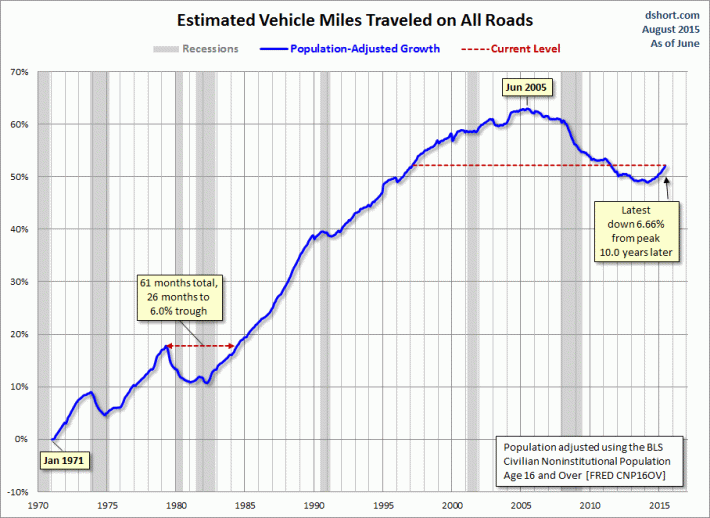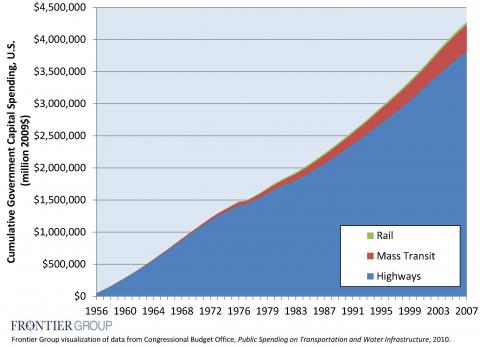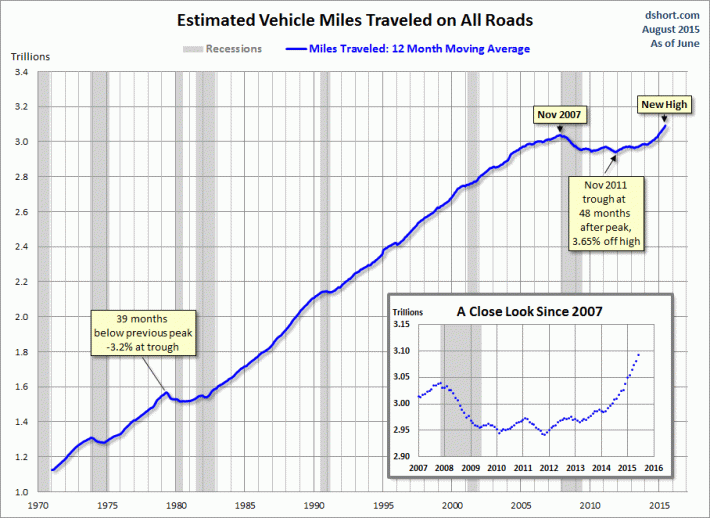After flatlining for nearly a decade, the mileage driven by Americans is rising once again. That means more traffic overwhelming city streets, slowing down buses, and spewing pollutants into the air. But to the Federal Highway Administration, it's a development to report with barely contained glee.
This June, Americans drove 8.7 billion more miles than last June, according to FHWA, a 3.5 percent increase. Total mileage in 2015 is on pace for a new high -- finally "beating the previous record" of 1.5 trillion vehicle miles set 2007, the agency reports, as if the further entrenchment of America's car-dependence is some sort of achievement.
Low gas prices, population growth, and an expanding economy are three factors nudging traffic back onto an upward trajectory, not to mention a transportation policy regime that remains tilted overwhelmingly toward highway construction.
The recent growth in traffic, however, does not negate lasting signs of a long-term shift away from driving. Economist Doug Short gets into more detail about the nuances in the trends, pointing out that on a per-capita basis, Americans are now driving about as much as we did in 1997.

Nevertheless, FHWA's PR team seems eager to convince the world that nothing has changed -- and that this is great news for America. The agency points out that this brings total miles driven to twice what they were in 1981, "continuing a trend of America's driving mileage doubling nearly every generation."
Based on the FHWA's press release, you might think that the explicit goal of American transportation policy is simply to double traffic mileage again by 2050. The new numbers, the agency says, reaffirm "calls for increased investment in transportation infrastructure as demand on the nation’s highway system grows."
Here's a thought: Maybe the way to reduce strain on the nation's highway system isn't just to "increase investment," but to adjust transportation spending priorities, so Americans can make more trips without having to get in a car.







